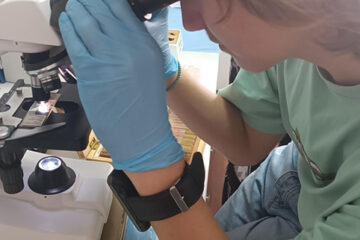Does online education hold the key to student critical thinking?
Anyone with even a slight interest in education will recognise the term ‘critical thinking’, with the term often being followed by angst-ridden comments from teachers and lecturers about how hard it is to engage students in undertaking it.
It helps that all concerned understand what critical thinking is before trying to facilitate it. The dictionary definition says that it’s ’the objective analysis and evaluation of an issue in order to form a judgement’. Much of the blame as to why students can’t do it seems to rest with their educators. A recent survey based on classroom observations found that in 30% of lessons observed, the teacher failed to ask any questions which stimulated critical thinking.
To assess learning in any subject purely by asking questions which require the student to undertake critical thinking is almost always doomed to fail that is unless the class are used to that approach. What is required is that after presenting students with any new learning, the educator must check the recollection of the knowledge, try to stimulate any additional knowledge that has been generated from it, then check understanding of it through the asking of a question that uses that knowledge to be able to think critically about the topic. An example could be from a geography lesson where the students have been learning about climate change. The check question could be ‘tell me three causes of climate change’. Once this information is checked and consolidated, the educator should ask a question such as ‘How will climate change affect your life?’ or ‘Can you give reasons why climate change may/may not be unstoppable?’
These questions force students to use the information they have and synthesise it with their own knowledge and understanding gained from their experience, to provide an answer to the question. Notice how we’ve said ‘provide AN answer to the question? The hoped for outcome from such questions is that many answers will be forthcoming and each of them in turn will amalgamate to widen the scope and depth of understanding of the issue.
One of the other reasons why there is such a low incidence of critical thinking in the classroom is purported to be the environment. In a standard classroom, the proximity of peers reduces the willingness of students to offer critically thought out answers verbally for fear of failure and ridicule. In an online classroom, the stimuli can be provided but the distractions are reduced and has been shown to lead to more confident, focused and detailed analysis enhanced through the use of collaboration and discussion forums.
If we are to develop young people into entrepreneurs and solution finders to the problems that face the world today and in the future, we must encourage critical thinking in our students and maybe online education holds the key?



